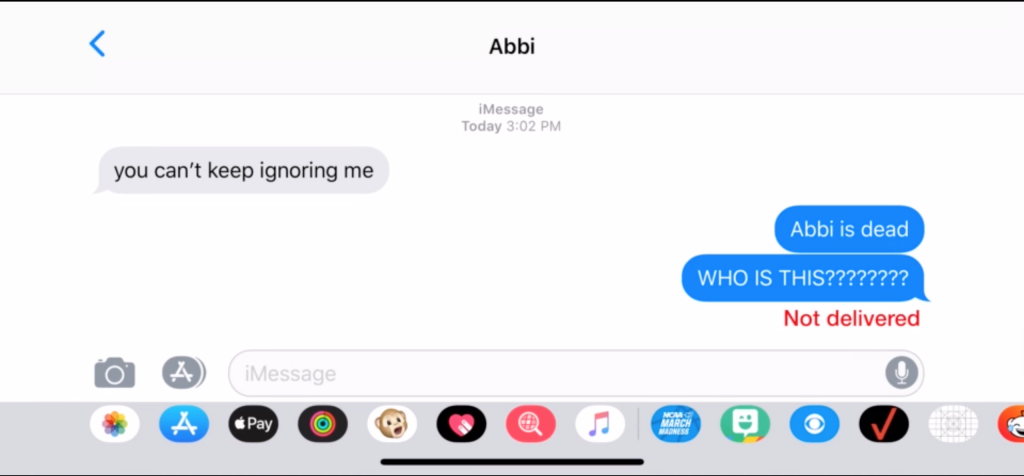Cannes: Cursed filmmakers explain their use of screenlife

This weekend at the Cannes Film Festival, the Frontières platform will screen a presentation and teaser trailer for Cursed, from Russian directors Salomeya Sobko and Maria Dudko. The film is produced by Maria Zatulovskaya, of Bazelevs. Screenlifer asked the directors how they managed to make a film about teenagers on their own terms and why the screenlife format was right for them.
Salomeya Sobko:
Director, cinematographer, multimedia artist. She graduated in 2012 from Columbia University with a degree in gender studies and anthropology. She last worked on film Listening to Moscow with director Ivan Proskuryakov, which was shown at the Moscow Beat Film Festival in 2015.
Maria Dudko:
Director, artist. She studied at the University of Melbourne, Faculty of Architecture. She is the author of play On the Stage, which was presented in the main competition of the Lyubimovka Young Drama Festival in 2017. She also worked on the 24_Doc TV channel.
OnCursed’s story:
Dudko: This is a story of first love and first betrayal; the protagonists are two young girls who are classmates. The idea of the film came to us when we were working on our online documentary project Young Russia, which also focuses on teenage girls. We went to our dacha [Russian summerhouse] and in two weeks wrote 160 pages of what should have later turned into a Russian-language series about teenagers for teenagers. But after a year of discussion and brainstorming, the project evolved into a full-length movie in English.
Sobko: The film will present a number of mystical elements that the main characters face; hence it is called Cursed.
Why they opted for screenlife:
Dudko: The choice of format was quite logical, since we wanted to tell a story about teenagers, about their subjectivity and inner world. It’s not a secret to anyone that teenagers spend a lot of time with their devices. It’s not that we think this is bad — quite the opposite. For us as directors, this gives opportunities for new visual techniques and narrative possibilities. A year before this project, I watched a lot of streams that I then used to edit some stories. I am convinced that the format of “life on the screen” is an extremely exciting challenge to cinematic language.
Sobko: While working on Young Russia, we talked to our protagonists about life on the Internet and how they express themselves in social networks. But visualizing it turned out to be quite challenging, since we were using many techniques for the first time. We spent so much time on Instagram, flipping through the teenagers’ pages, that it seems we ourselves ended up mastering their language well.

On the difficulties of working in screenlife:
Dudko: In traditional cinema, unlike screenlife, characters almost never interact directly with the viewer. Our film takes place on the devices’ screens, and each character communicates with their phone in his or her own way, which constructs his or her identity. This is a significant part of the story and one of the themes explored in the film.
Sobko: Another difficulty that we managed to turn to our advantage is that many scenes of the film were originally made in a vertical format. Using creative tricks and clipping techniques, we combined several vertical elements, which ultimately allowed us to achieve the desired effect.
Tips for first-time directors:
Dudko: It seems to me that the main thing is a good script, written about what is important to you. You either make that or die.
Sobko: I would add that you need to write about those sincere, sometimes ugly and uncomfortable things that we ourselves do on the Internet. This is the only thing that can create a sense of reality in what is happening.I

